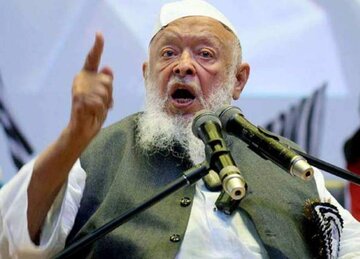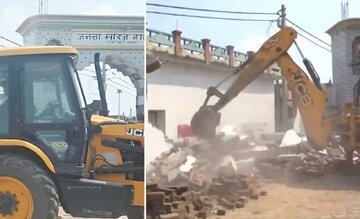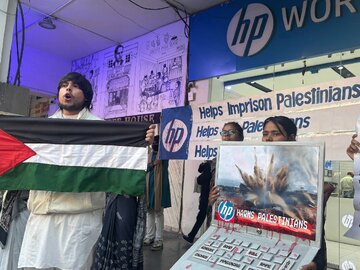Although the conflict in Parachinar has ended and a ceasefire is in place, the Shia community in the region is still under siege. Despite no restrictions from opposition groups, locals are either forced to pay large amounts to travel by helicopter to Peshawar or must bribe Pakistani government forces—such as the police and Frontier Corps (FC)—to use ground routes.
Not Just Militants, But a Government-Imposed Siege
Earlier it was claimed that the siege was being enforced by extremist groups (Takfiris), but now it's becoming increasingly clear that the Pakistani government forces are also involved. According to local reports, experts had suspected from the beginning that the blockade was not just the work of militants but had backing from state forces pursuing undisclosed motives. One likely goal is to raise the cost of living in Parachinar so that the Shia population leaves the area voluntarily.
Shia Movement Turned into a Source of Profit
Although the authorities now claim that Shias are free to travel, in reality, the police and FC do not allow them to move without paying large sums of money. For example, a regular car (used as a taxi) must pay nearly 100,000 Pakistani rupees to transport Shia passengers in or out of Parachinar. Larger vehicles, such as 15-seater vans, are charged double.
Trucks carrying food, poultry, or medicines also have to pay similarly heavy bribes. As a result, by the time goods reach Parachinar, their prices are extremely high, making them unaffordable for ordinary people. This has worsened the economic hardship in the area.
Helicopter Travel Beyond Reach for Most
Those who travel by helicopter must pay even more than ground transport, and only wealthier individuals can afford such costs.
In contrast, people from Sunni-majority villages around Parachinar can travel freely without any extra charges or interference. They face no restrictions from the Pakistani security forces.
Administrative Shift – A Silent Strategy?
Parachinar, the capital of Kurram District, is also facing administrative downgrading. The Deputy Commissioner now stays three days a week in Sadda, a Sunni-majority town about 20 km from Parachinar, and only three days in Parachinar itself. The District Education Office has been fully moved to Sadda, and all NGO offices have also been relocated.
In addition, the Shia-majority town Alizai, located about 50 km from Parachinar, has been stripped of its official "Tehsil" (sub-district) status.
A Silent Plan to Displace the Shia Population?
These developments have raised serious concerns that the Pakistani government may be trying to diminish Parachinar’s regional importance, possibly as part of secret deals with foreign powers. The strategy appears to be aimed at gradually forcing the Shia population to abandon the region.






Your Comment